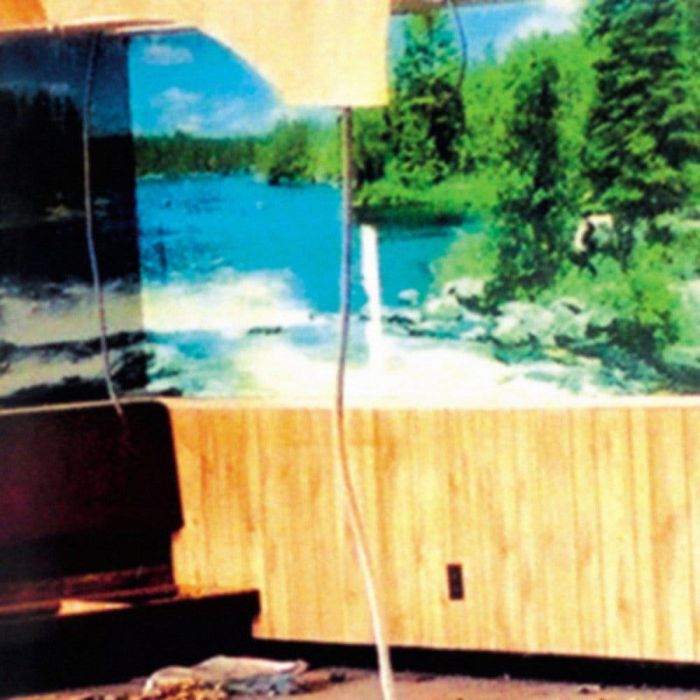& Yet & Yet by Do Make Say Think (Review)

I can’t help feeling bad for the other bands on Constellation Records. When the roster includes Godspeed You Black Emperor! and A Silver Mt. Zion (or whatever longwinded moniker Efrim decides to use), I wonder how Constellation’s other offerings fare in the public pulse. I’m assuming that they have to deal with either endless comparison to their more apocalyptic-minded brethren, or simply remaining overlooked and underrated. Personally, I think Do Make Say Think has suffered from a chronic case of the latter.
Do Make Say Think’s self-titled debut was solid enough, jumping between loose, jazz-influenced jam sessions (think of a less cohesive Tortoise) and drawn-out psychedelia. Their second album, Goodbye Enemy Airship The Landlord is Dead, was a much stronger effort, tightening the grooves and culling some of the more psychedelic effects. Although it lacked some of the looseness and spontaneity of their debut, it was a far stronger and more exciting release.
& Yet & Yet could be seen as a step back from their second album, although I like to think of it as the sextet simply expanding their sound. It doesn’t have quite the explosiveness of Goodbye Enemy Airship…, reaching the same climactic heights as, say, that album’s “The Landlord Is Dead.” Rather, it’s a much more consistent release, with a sound that feels more natural and relaxed.
Opening with a burst of static, “Classic Noodlanding” slowly builds on Do Make Say Think’s syncopated rhythms (courtesy of two drummers), sparse guitar and horn melodies, and, for lack of a better term, synth noodling. But rather than come off as some blatant stab at achieving a spacey sound, the synths filter in and out, adding atmosphere where there’s an empty space. “Classic Noodlanding” also shows Do Make Say Think’s incredible skill at balancing all of their disparate sounds.
It’s hard to point out any dominant instrument (although one is tempted to point at the percussion). Each instrument clearly has its own space, but one that blends in very nicely with everything else going on. Even as newer elements are worked in, be it a different keyboard part, a new melody, or some field recording, it eases into the mix, finds its niche, and adds to the song. Admittedly, this does mean there are times when Do Make Say Think’s music feels incredibly repetitive, but closer listening reveals a complex and fascinating palette.
Although Do Make Say Think is adept at creating spacious pieces, they also know how to introduce tension as well, as on “End of Music,” where buzzing synths and frantic drumming combine to create an atmosphere of, if not dread, than certainly anxiety. Again, it’s interesting to hear how Do Make Say Think introduces new elements, whether it’s delicate piano tinkling or distorted shards of guitar. “Chinatown” is one of the album’s more subdued pieces, with a sparse bassline playing over a bed of muted electronic percussion, field recordings, and a faint, yet beautiful synth melody that echoes some of the self-titled album’s more spaced-out moments.
The tension displayed in “End of Music” is revisited in the ringing guitars, distorted shards of noise, and intricate drumming of “Reitschule.” However, the song ends up taking a different direction, following a fluid bassline and solemn horn arrangement. Each time the song builds to a drum-crashing climax, it immediately gives way to the more delicate elements, preparing the listener for the album’s highlight, “Soul and Onward.”
Here, Do Make Say Think’s intricately layered compositions are joined by the ghostly vocals of Tamara Williamson, which sound more like a theremin than anything else. As her vocals build, layering on top of each other, sleigh-bells, horns, and the piano chime in accordingly, propelling the song to a level beauty unlike anything else in the band’s repertoire.
I’ve always felt that Do Make Say Think was the most underrated band on Constellation, effectively sidestepping any comparisons with their more famous labelmates by developing a solid sound all their own. At the same time, they also stand out from other comparable instrumental bands (i.e. Tristeza, The Album Leaf), with a sound that feels far more real and immediate. And there’s even better news for fans of the band living in these here United States; the band is rumored to be touring the USA this summer, which makes one hope their music is as compelling in a live setting as it is on this recording.